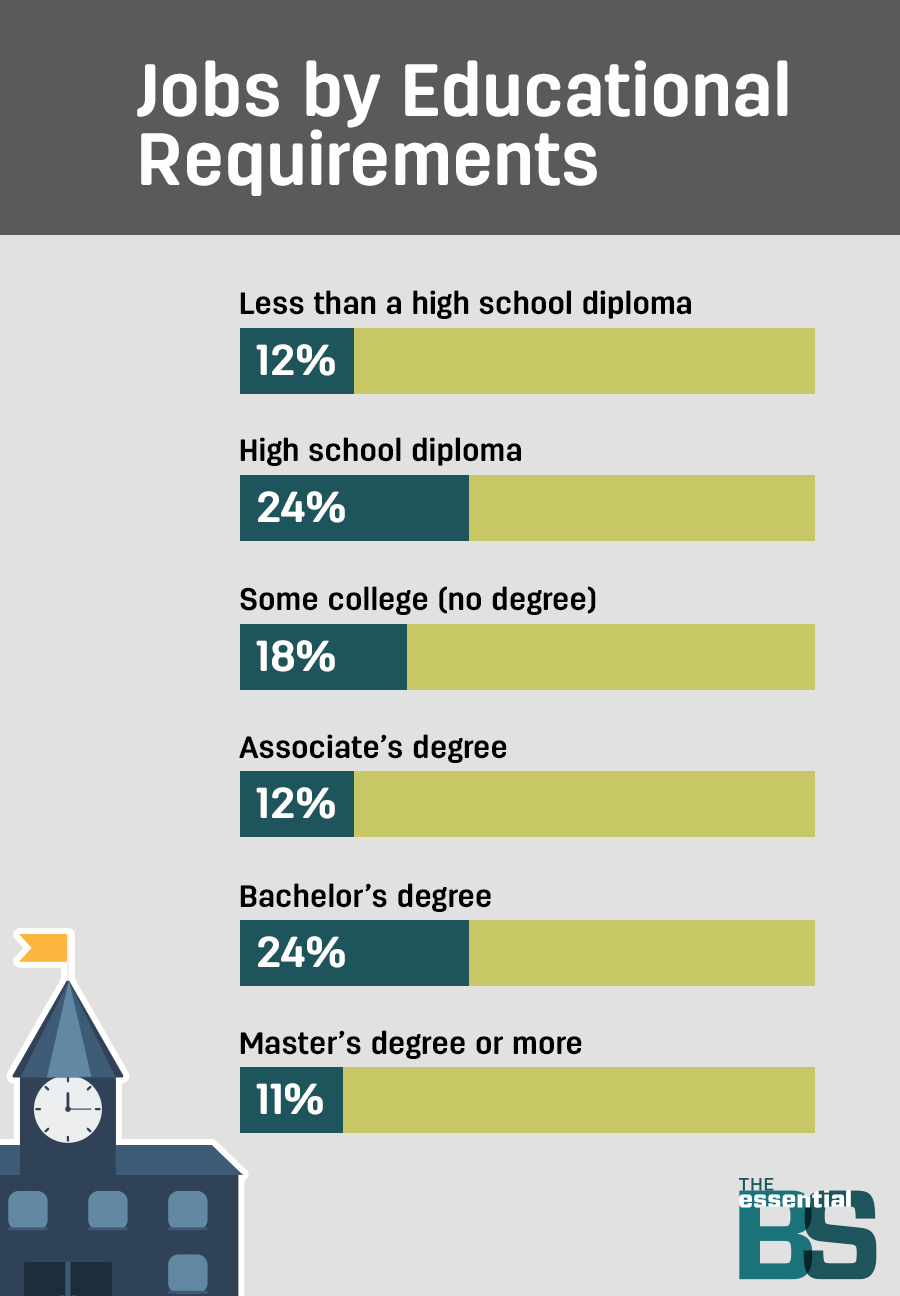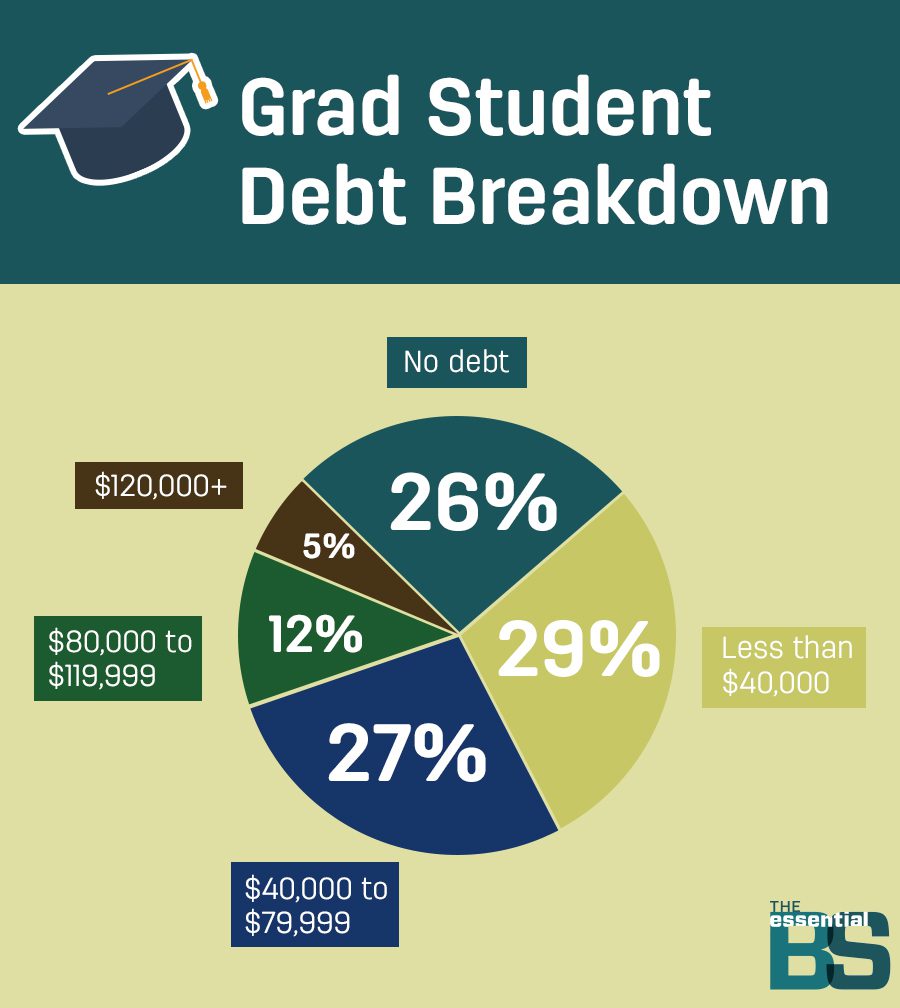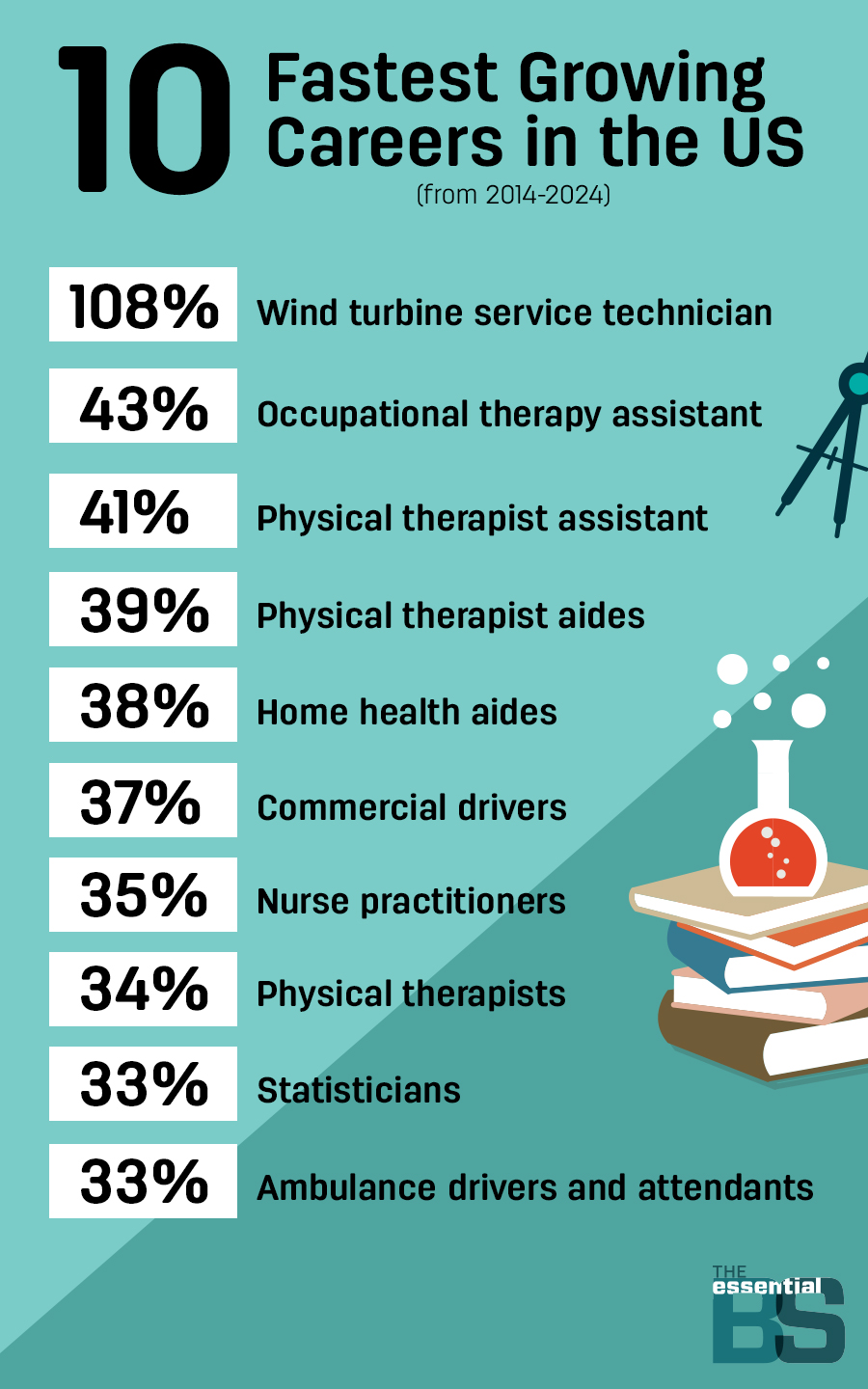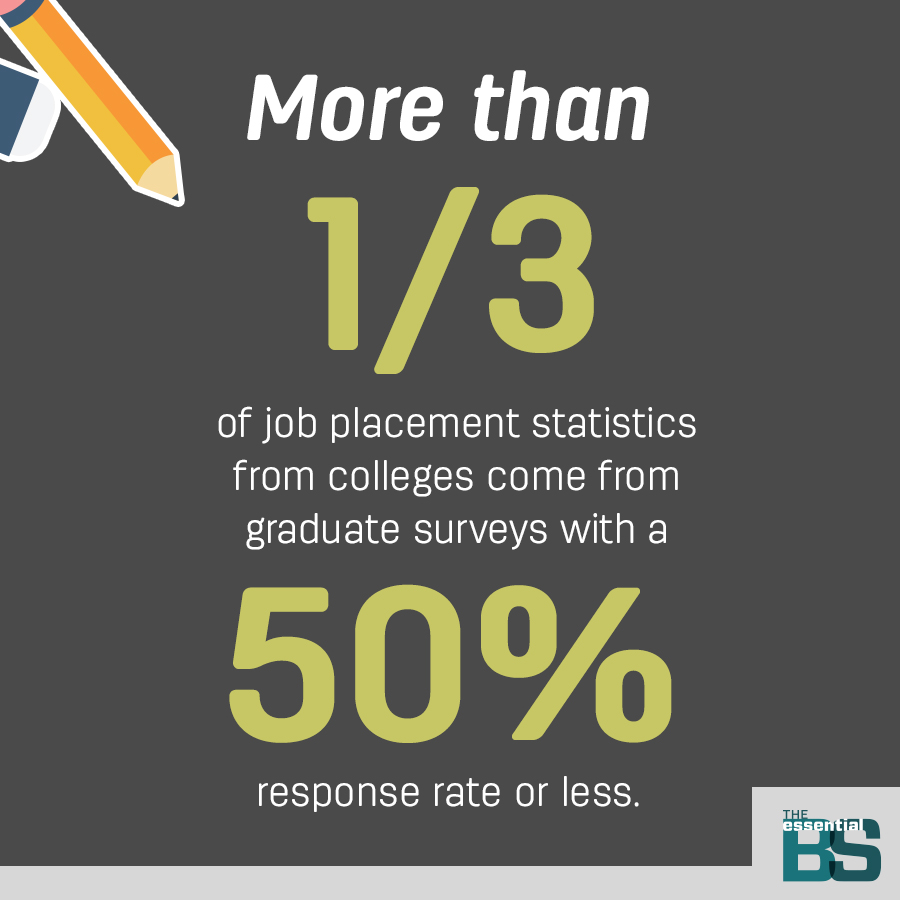Should I Go To Grad School? 5 Statistics To Consider First
I think you'll agree that choosing to further your education is not an easy decision to make.
Whether you're going back as a way to boost your salary or because you simply love to learn, grad school requires a lot of time and money, so it's worth weighing all the facts.
Before you start buying those back-to-school supplies, there are five statistics about grad school you need to see.
Only 11% of Jobs Require a Master's Degree
The number of degrees and certifications needed to compete in the working world continues to blossom as education becomes more and more specialized. However, only 11% of jobs currently require a master's degree, and that number isn't expected to increase in the near future.
Some job training requirements are no-brainers—of course you need special certification to be a a phsyical therapist! But other careers (i.e. 89% of the jobs out there) might surprise you.
 (information via Georgetown University)
(information via Georgetown University)
The Average Grad Student Owes $57,600 in loans
A lot of graduate schools—especially in the hard sciences—will pay most or all of your way through their programs. And if you're lucky enough to be in a position like this, grad school might seem pretty reasonable. However, for those who don't manage to snag a full ride, they can expect some students loans.
About $57,600 to be exact.
That means that if you don't get a scholarship or teaching assistantship, the best-case scenario for you—the most you can hope for—is that you start your career already $57,6000 in the hole (on average).
 (information via The College Board)
(information via The College Board)
Only 1 of the Top 10 Fastest-Growing Jobs in the US Requires a Master's Degree
If you're looking at some kind of computer science degree, where demand is fairly high and the average salary is bonkers, then going into debt (and putting your life on hold for a couple of years) makes a decent amount of sense. If you know your stuff and know how to market your skills, finding a job should't be too difficult.
Unfortunately, not all careers are as lucrative or in-demand. In fact, when it comes to the fastest-growing careers in the United States, a job that requires a master's degree doesn't even crack the top five. One doesn't show up until number nine. And you know what it is?
Statistician.
Do you really want to go to grad school for…math?
If you're going to school for a field that's not on a hiring spree, you might want to make sure that you either have existing skills to fall back on, or that you have a damn clear idea where to go next after getting an advanced degree.
 (information via the Bureau of Labor Statistics)
(information via the Bureau of Labor Statistics)
You Probably Can't Trust Your School's Job Placement Statistics
This is not about one specific statistic, per se, but rather about all the sketchy statistics that universities publish about student employment rates after graduation. While their intentions may be good, most of these stats are based on self-reported surveys, which tend to have low response rates and be skewed towards gainfully employed former students.
Think about it this way—if you had a master's degree but couldn't find work in your field, would you want to admit to that on a survey?
 (information via CBS News)
(information via CBS News)
One-Third of Millennials Regret Their Higher Education
Just because you like the idea of grad school doesn't mean you'll actually like grad school. In fact, one-third of millennials say that the college just wasn't worth it.
Before you send out a single application, take some time to ask yourself:
“Why do I want this?”
If the answer is that you care about academia, or that you've never known anything other than school, or that you don't know what else to do with yourself…that's honestly not enough.
Take some time. Work a few places. Because, according to that survey, that's exactly what folks said would have been a better use of their time in school.
Find the passion that pushes you through all the terrible aspects of a job because you love the good parts so much. Make a plan for what a career in doing that thing looks like. Then find a school that can help you get there.
But don't go to school just because you want to go to school. Go to school because you've found somewhere that fits you, and that will set you up for success in a way that's meaningful to you.
 (information via Bankrate)
(information via Bankrate)
Editor's note: A special thanks to Jasmine Av for her great work on the graphics in this piece!











